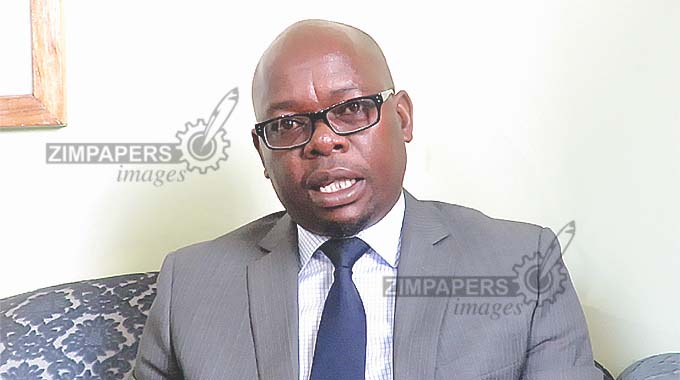Benjamin Mkapa: Africa robbed of a liberation giant

Obert Moses Mpofu
Correspondent
The passing on of Cde Benjamin Mkapa — the former President of Tanzania (1995-2005) — is not only a loss to the East African nation.
It is a loss to the entire continent of Africa.
The late former President of Tanzania was not only instrumental in bringing about a political transformation in Tanzania.
He led Tanzania through a period of remarkable economic development.
Beyond his role in ushering Tanzania’s current economic transformation, he applied his diplomatic charisma in finding African solutions for issues of political conflict.
Without doubt, he leaves a celebrated legacy of setting up ideological blueprints for democracy relevant to the African context.
Cde Mkapa is credited for enacting far-reaching economic reconfiguration strategies which have strengthened the modern foundation of the gold-and-gas-rich of the East African nation.
Through creating an organic African prototype opening up the Tanzanian economy, Mkapa ensured that his nation’s model of engaging international finance institutions such as the IMF and World Bank correlated with the Tanzanian experience.
To this end, he is celebrated for meticulous navigations of statecraft between global capital dictates and strengthening indigenous terms of economic state-building.
His crafty engagement with the moral dilemma of submitting Tanzania to global market-related economics was neatly couched on the pro-African centred development trajectory set by the founding father of Tanzania, Mwalimu Julius Nyerere.
As a protégé of the great father of African Liberation, Mwalimu Nyerere, the late Cde Benjamin Mkapa, remains celebrated in Tanzania for ushering a domestic transformative paradigm shift which was consistent with the liberation tradition.
To this end, in the East African political front, Mkapa will be remembered for his contribution as one of the key brokers of Africa’s inaugural Kenyan coalition government in 2008 after contested presidential election results of 2007.
Kenya’s grand-coalition government was an aftermath of a post-electoral crisis characterised by widened polarisation, violence and intense instability to the Eastern region.
As such, Mkapa was among the Kofi Annan-led group of African political negotiators who took up the challenge for Kenya’s consensual preparation for constitutional reform.
In 2009, after the challenges which protruded from the 2008 elections, the same model was applied in Zimbabwe, leading to the formation of the Government of National Unity (GNU).
Based on this meaningful contribution to the continent, Cde Mkapa must be celebrated as a true African liberation whose service to the development of Africa has been strongly guided by broad-based tenets of Africa’s continued fight for decolonisation.
His application of leadership credence to the continent was also noted through his extensive interventions in the 2015 Burundi electoral conflict.
As a result, his leadership genius will be forever attributed to sound African statesmanship.
Those of us in the nationalist movement will continue to draw pragmatic political lessons from giants like the late Mkapa.
From his legacy, we derive the virtue of African political leadership with no borders.
We extract the very wisdom of the need for Africa’s unity of purpose through Mkapa’s involvement in the continent’s several conflict resolution mechanisms.
Mkapa’s legacy should be situated within the context of a neo-colonial predicament which Africa still struggles to confront.
It was a privilege to bid Benjamin Mkapa farewell at the recently held Chama Chamapinduzi (CMM) Congress in Tanzania.
On a more personal note, the return to Tanzania many years after my military training there under ZIPRA served to ignite the profound memories of Tanzania’s role as a host of many African liberation movements in the 60s.
Likewise, attending the CCM congress also confirmed the fraternal spirit of resistance which formerly colonised states continue to share.
The deliberations at this important event convened by the CMM once again imprinted the need for a determined position to challenge the hangovers of imperialism in securing the longevity of African nationalist movements.
To this end, a decision was made to extend President John Magufuli’s tenure in office.
This decision was primarily conceived by the economic turnaround strategy which President Magufuli has applied in fostering Tanzania’s economic development.
President Magufuli’s current success in driving economic change is linked to the reform economic policy architecture ushered by Mkapa.
On the international stage, Cde Mkapa challenged the extent to which globalisation has been paraded as the guaranteed model for pursuing sustainable socio-economic and political development.
The lobby for an even global power matrix is a clarion call to challenge the linear and exploitative manoeuvres which downplayed Africa’s economic freedom.
Going forward, Africa needs to ensure that the contributions of our heroes such as Benjamin Mkapa are preserved for future generations.
Dr Obert Moses Mpofu is Zanu PF’s Secretary for Administration







Comments